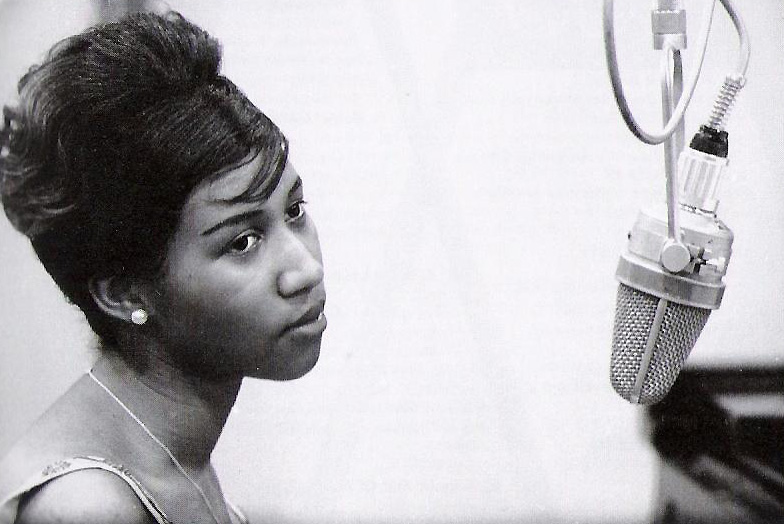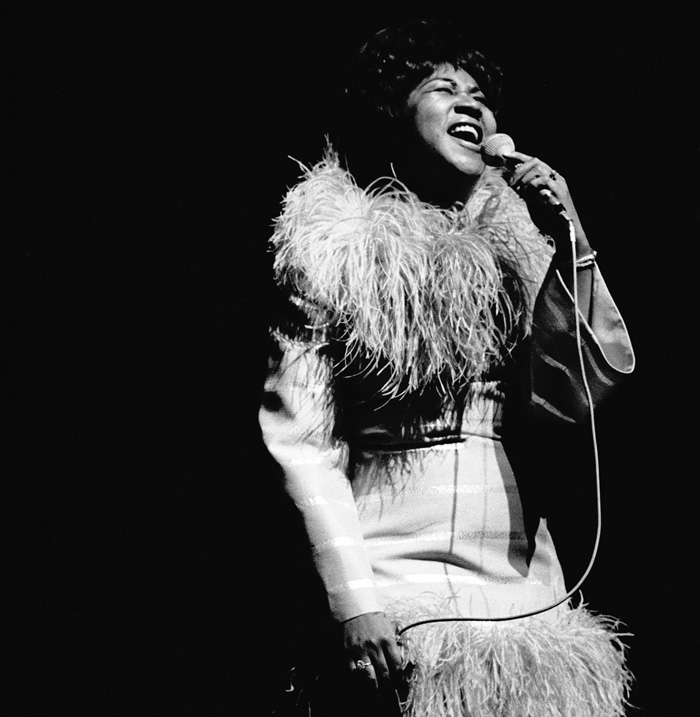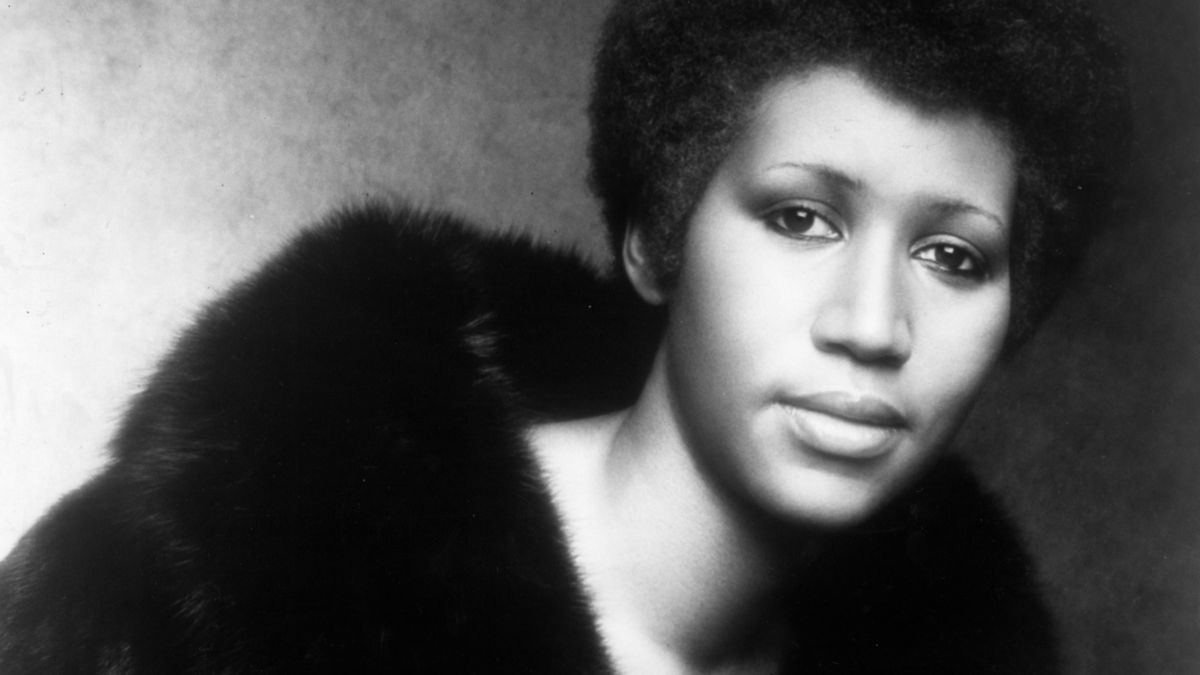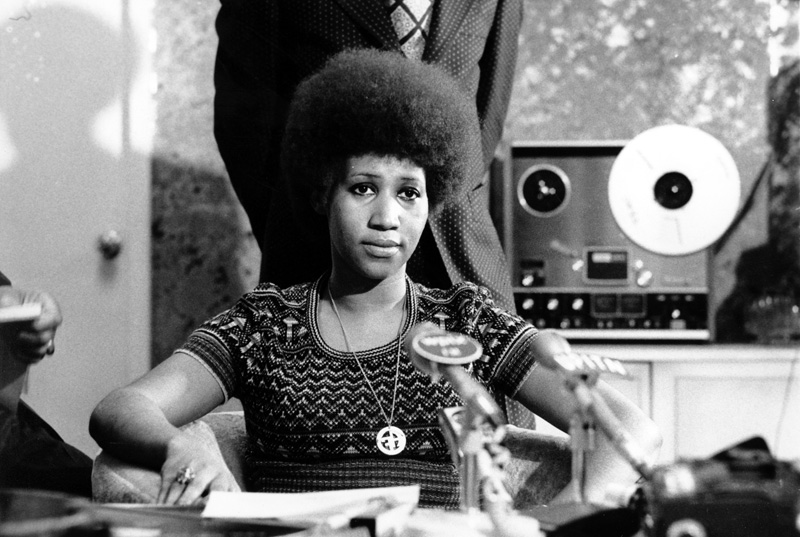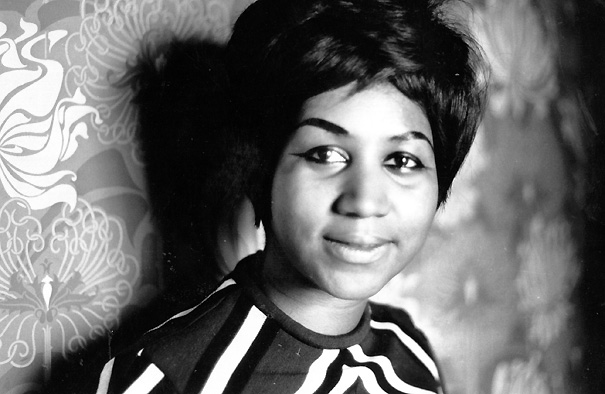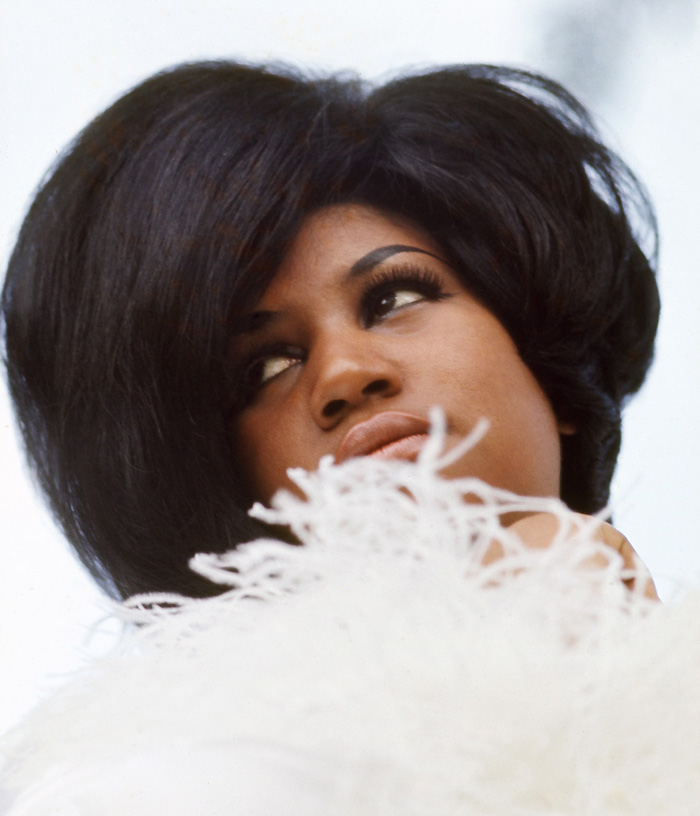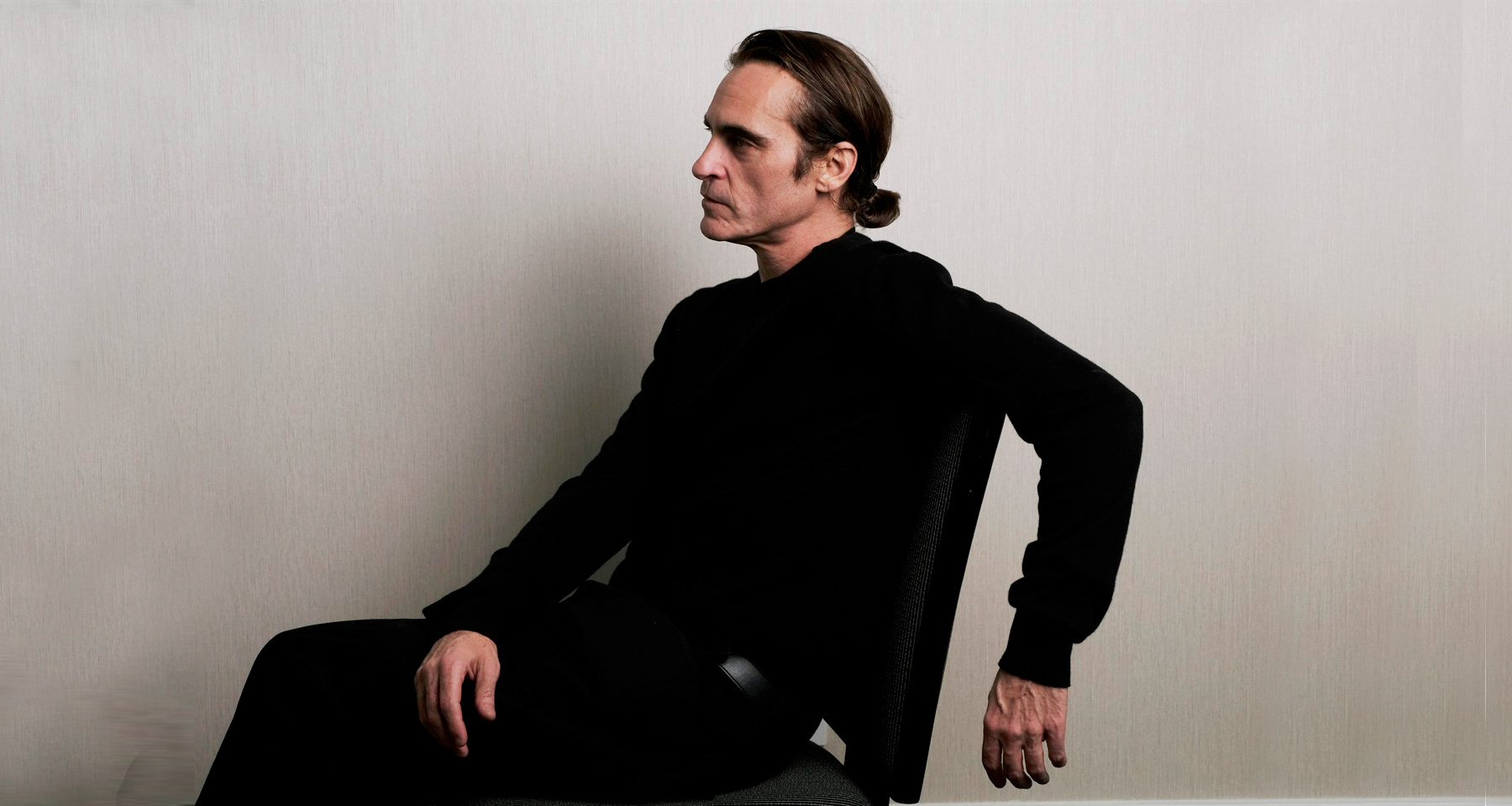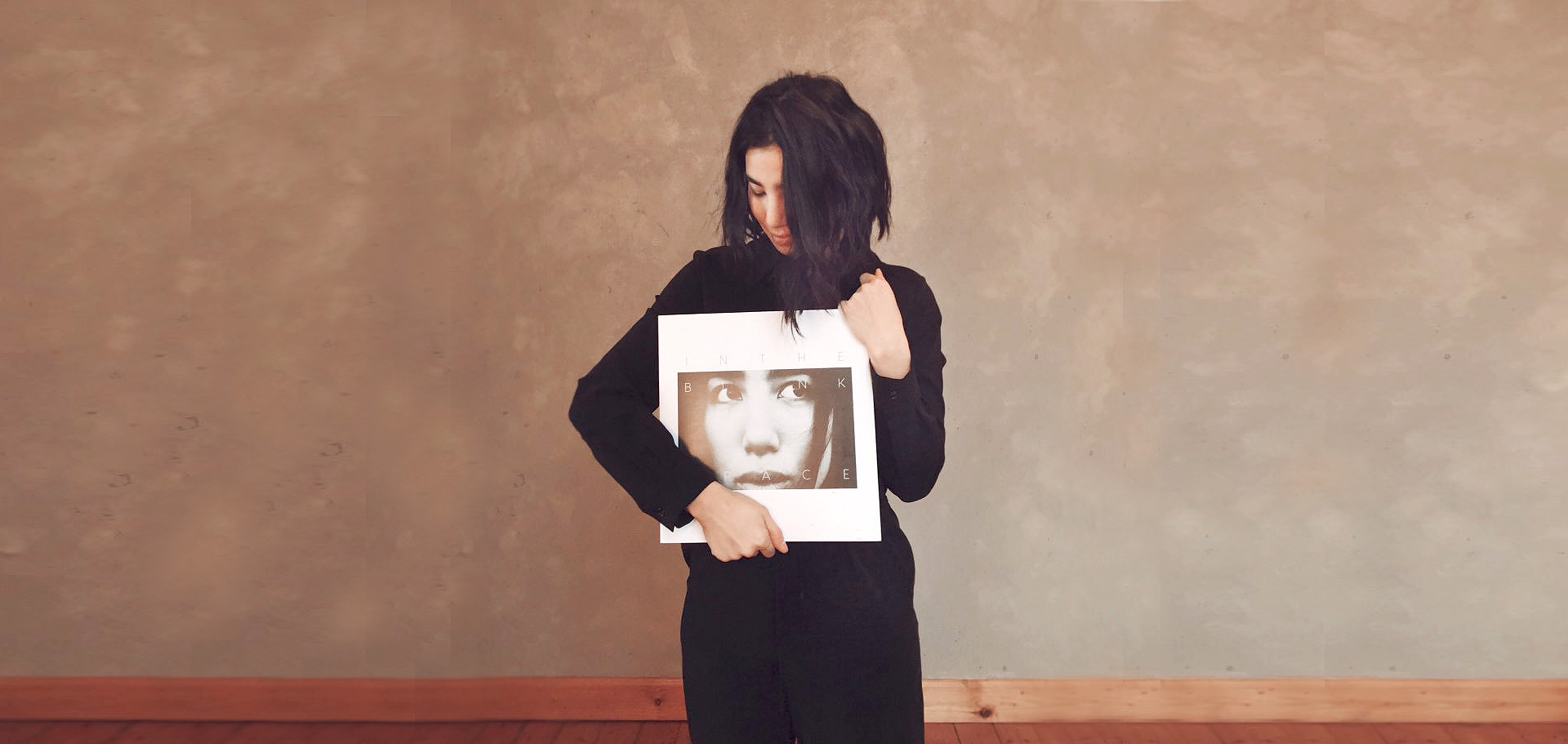Aretha Franklin speaks for everyone when she sings, “All I want is just a little respect.”
She walked on stage on a cool summer evening, wearing a mink jacket over a glittering gown. She stepped a little gingerly, as if she were stiff or feeling some discomfort. She waved to the audience and then unleashed her voice: “Like a warrior that fights to win the battle ….” The sold-out crowd roared as she sang the No. 1 hit she recorded in 1987 with George Michael, “I Knew You Were Waiting (For Me).”
This is Aretha Franklin, age 75, in concert at Wolf Trap National Park for the Performing Arts outside Washington, D.C. It was the 17th time I’ve seen her sing. And probably the last. Earlier this year she announced, “This will be my last year in concert. This is it.”
The dates she’s set up for her farewell tour have been iffy. She’s canceled several concerts this summer, citing “doctor’s orders.” She was diagnosed with an illness in 2010, widely rumored to be pancreatic cancer. She underwent surgery, disappeared for some months, re-emerged after having lost 85 pounds (according to her reports) and went on to make some wonderful music. With her recent track record, I worried that she’d break our date (well, she technically didn’t know it was a date, but you know how fans are).
But she did make it to Wolf Trap. And she was in great voice for the opening numbers, sticking to her still vital and velvety middle range, investing the lyrics with intimacy and issuing wordless moans that captured the pain and passion of the blues. She began “Chain of Fools” with a piercing “wo-oh-a-oh-oh” while sitting in an easy chair as a way to husband her energy.
Hearing that voice once more took me back to the first time I heard her sing. I was a teenager. This mighty female roar came out from my tinny transistor radio and delivered a spelling lesson: “R-E-S-P-E-C-T. Find out what it means to me.” Her voice was rich and soaring, powerful and passionate. I had never heard anything like it. And I fell in love with that voice. But as a sheltered suburban Caucasian teen, I couldn’t truly appreciate what a daring demand she was making: a woman commanding sexual respect, an African American telling the white world to give “me my propers.”
I became a devoted fan. I loved every song she did. I couldn’t wait for the next single (they dropped every couple of months back in those days). Each song was a lesson in how to make music: from the haunting beauty of her confessional “Ain’t No Way” to the strident demand to “Think” about what you’re trying to do to me. I understood for the first time how music wasn’t just a series of notes to be played or sung (which is how I dutifully played piano). It could be deeply personal, it could touch a person’s heart and soul.
I saw Aretha in concert for the first time in the early ’70s. She wore a sparkly gown, just as she did in Wolf Trap. Her music poured out of her like a rushing river. She played piano for many numbers, her fingers dancing over the keyboard, creating all the instrumental support she ever needs. She wore her hair in a short afro — a revolutionary style at the time. Years later, I interviewed her and told her how much I liked her natural look. “Wasn’t it gorgeous?” she said.
As the years went by, I remained a loyal fan. Okay, obsessive. Even when her musical choices weren’t inspired. Her disco album “La Diva” had a rushed, un-Aretha like feel, because one of her great gifts is knowing how to, in her words “Aretha-ize” her music. Yet even that album had the ebullient “Honey I Need Your Love,” which taught an invaluable musical lesson: When in doubt, go back to roots. A gospel piano backing and punchy horns enabled her to make a joyful noise.
And as I went looking for love and didn’t always find it, I gained a deeper appreciation for the way she preached about romance. As she put it in the subtitle to “Dr. Feelgood,” “love is a serious business.” She used her vocal genius — the warm and supple voice, the soaring high notes, the gutsy growls, to put it all out there. My favorite live performance had nothing to do with love. And I couldn’t even see her sing, I just heard that voice, wafting above my head like a heavenly cloud. It was in 1993 at a memorial service marking the 25th anniversary of Robert Kennedy’s assassination. The setting was Arlington National Cemetery. She sang “America the Beautiful,” slowly and purposefully, tinged with pride and also a hint of sadness, perhaps reflecting on the ironies of praising a country that had oppressed her foremothers and forefathers. As I stood among the tombstones of fallen soldiers, I felt a chill run down my spine.
Her open emotions also helped me let my feelings out. In the early 2000s, when my wife faced breast cancer, I listened to “Drown in My Own Tears” and Aretha’s open declaration of sorrow gave me license to shed some tears myself. My wife is today in good health, and on Saturday night, there we were, watching Aretha work her magic. Critics sometimes blithely write that she sounds better than ever. That is not true. Her vocal instrument is three-quarters of a century old. As the concert progressed, her voice sometimes faltered. But her spirit did not. She improvised an impromptu gospel-style verse about her battle with her unnamed illness, she sang that she “looks back to the year 2010” when she had to kneel in prayer, the year she faced her medical crisis — and “this is 2017 and I’m holding on.”
At Wolf Trap that night, she sang about half-a-dozen songs then left the stage for an interlude that lasted about 15 minutes, presumably to shore up her strength. The band played a Latin-flavored number. Horns blared, the female drummer was on fire. But without Aretha in the spotlight, the music had lost its soulful center.
During that instrumental break, the giant screen hanging over the stage played a clip showing “Round 15” from a Joe Lewis fight. It seemed an odd choice.
Five, 10, maybe 15 minutes went by. And then “like a warrior who fights,” Aretha came back and continued to make glorious music. And she shared her earthy sense of humor as well. An audience member called out, “Love you, Aretha.” She replied, “Okay, love you back.” Pause for comic effect. “Where are you sitting?”
As the evening came to a close, she told the audience this is her 54th year in the business. (Which is, typical of Aretha, not entirely accurate since she recorded her first gospel record at age 14 and signed with Columbia records in 1960.) Then she spoke words that are undeniably true: “I’ve truly been blessed. In spite of it all, when I think of what it could have been … I’ve truly been blessed.”
And she bid us farewell, saying that with luck, “I’ll see you next time.”
Even if this is the last time, I didn’t feel like it was goodbye. The next day, I went for a long run and listened to nothing but Aretha and was struck by a line in a jaunty song from her less-soulful but lots-of-fun 1980s period. “Take Me With You.”
“I just wanna be in your head like a melody,” she sang into my earbuds. And there she will always be.
Franklin is one of the most celebrated women in music history. She’s been hailed as the “Queen of Soul” since forever, was the first woman ever inducted into the Rock and Roll Hall of Fame, has won 18 Grammys (for several years, she had more than any female artist in history), and has sold a whopping 75 million albums over the course of a stellar career. Her longevity rivals the Isley Brothers and the Rolling Stones, and her classic years featured the release of some of the greatest albums in the history of music. In 2011, she was declared the Greatest Singer of All Time by Rolling Stone magazine.
Smokey Robinson once said, “Everyone was singing and harmonizing, everyone was playing piano and guitar. Aretha came out of this world, but she also came out of another far-off magical world none of us really understood. She came from a distant musical planet where children are born with their gifts fully formed.”
So why does it feel like we still don’t fully appreciate Aretha Franklin?
As revered as she has always been, as beloved and iconic as she undoubtedly remains, the scope and the depths of Aretha Franklin’s artistry are oftentimes reduced to those classic hit singles and that inimitable voice. That voice is a thing of majesty and beauty, and her most famous songs are forever tethered to popular culture, but Aretha’s talents as an instrumentalist and songwriter, the variety and vision in her classic albums, and that aforementioned longevity, are sometimes peripheral to “that voice” in the way Aretha is viewed and presented. From the moment she signed with Columbia in 1959, Aretha was focused on charting and charting big. When she shifted to Atlantic in 1967 and teamed with producer Jerry Wexler, she and her then-husband and manager Ted White focused on her songwriting.
Born in Memphis and raised in Detroit by her devoutly Christian father, Rev. C.L. Franklin, young Aretha made her first record when she was just 14 years old and landed her first record deal at 18. She’d dropped out of school after family friend Sam Cooke convinced Aretha and her father that she could be a star. Columbia’s John Hammond signed her and immediately had the young singer recording jazz material like “Rock-a-Bye Your Baby With a Dixie Melody.” Franklin spent years recording songs that were better suited to Dionne Warwick or Betty Everett.
“[It] was more kind of ‘easy listening,’ as they say in Cashbox [magazine],” said Aretha in an interview with Record Mirror back in 1968. “I started off [at Columbia] with more powerful material—very similar to the kind of thing I’m recording now with Atlantic—and went on to slower music. But I can say that my big records and my success have been due to the backing which Atlantic have put behind me. I can say that I wouldn’t have had these hit records if it wasn’t for Atlantic, and their organization.”
At Atlantic, Aretha was given more creative latitude—she played piano and wrote more of the songs herself. Producer Jerry Wexler teamed her with the famous Muscle Shoals session musicians at FAME Studios. The shift to Atlantic kick-started Aretha’s most celebrated run, where she churned out epochal singles like “(You Make Me Feel Like) A Natural Woman,” “Think” and “Chain of Fools.” In 1967, Aretha became a superstar after the release of I Never Loved A Man the Way That I Love You, an album where she co-wrote four of the eleven tracks.
She would go on to write hits like “Think” and “Rock Steady” and “Day Dreaming,” but Franklin’s voice would overshadow her songwriting abilities and stellar piano play. As such, she’s rarely mentioned alongside Nina Simone, Elton John, or Joni Mitchell as a singer-songwriter/instrumentalist—a testament to the somewhat limited way that we celebrate Ms. Franklin. That could be a byproduct of hitmaking and having arguably the most amazing voice of all time. There was always an eagerness to assign Aretha’s classic years to the vision of Wexler, who’d plucked her away from Columbia and taken her down to Muscle Shoals. But Aretha had always known who she was, musically and creatively.
“My big ambition later on, when I was with Columbia, was to have a big record,” Aretha explained in 1967. “Ted and I have written quite a few songs—but the name on the label credits would be ‘White’—we write under my married name. I like writing, and don’t confine myself to just the words, or just the music. But I don’t particularly write songs with myself in mind.”
She’d never even expected “I Never Loved A Man the Way That I Love You,” her breakthrough single, to be a major hit.
“I was surprised. I could see more potential in ‘Respect,’” she said at the time. “In fact, I can say I knew that would be a hit song. Sometimes I can’t get a song right in the recording studio, though. We usually work things out beforehand, not like the Memphis studio where they don’t plan things like that, but can end up with a master. We usually know what we’re going to do. I sing and the musicians kind of fit things around me. Two of my favorite songs incidentally are ‘Rock-a-Bye,’ which was on Columbia, and ‘Chain of Fools.’”
Aretha was a hands-on performer in the studio. Although paired with Wexler throughout much of her legendary stint at Atlantic and having worked with luminaries ranging from Curtis Mayfield to Stevie Wonder to Luther Vandross, Aretha had taken an active role in co-producing her records. But she never had any desire to be entirely self-produced—despite the fact that she had the capability to make those records herself.
“That’s just too many hats—it’s a lot of responsibility,” she said to David Lathan in 1978. “It’s enough singing and writing material. I wouldn’t even think about it—no, it’s not going to happen. Writing the tunes and just perfecting your own vocal performances is enough work. Now I do co-produce things because you’ve always got someone else you can relate to and exchange ideas with.”
And the pain of her personal life has not been something she’s always been eager to discuss. She became a mother when she was barely 14 years old. With “Papa Don’t Preach” a major hit that year, Aretha was asked by Interview magazine if the song had any personal resonance with her because of her own history as a teenage mother with a religious dad.
“Well, that’s very, very personal and nothing I care to discuss,” she said—before shifting the focus to her own ambitions. “I’m very happy with things just the way they happened for me, and what I’m going to do now is go back and get my diploma. I’ve thought about going to MSU [Michigan State University] to enroll as a special student in music theory.”
She’d had two children by the time she was 15, and would endure two high-profile divorces. She and White divorced in 1969, ending a marriage marred by White’s domestic abuse and manipulations. Franklin would marry actor Glynn Turman in 1978, but the couple split in 1984. Franklin and Turman would remain friendly—she sang the theme song for his hit NBC show A Different World. “Glen was a sharp guy,” she told Wendy Williams in 2011. “And he’s a beautiful man. We talk all the time.”
Franklin called off her engagement to Willie Wilkerson in 2012. The couple had been discussing marriage ever since the late 1980s, but it doesn’t appear to be a preoccupation for Franklin—even if it is an institution that she’d always had respect for.
“I don’t feel that everyone has to deal with a piece of paper,” Franklin said back during her marriage to Turman. “But it’s always been here and I think it always will be. Personally, I agree with the tradition that love and marriage go together like a horse and carriage! I think, though, that it’s an individual thing up the people involved. I do feel that people are getting back to some of the more traditional, basic things in life.”
In 2014, David Ritz released a controversial biography about the singer called Respect: The Life of Aretha Franklin. It presented Aretha as obsessive about food and sex, delusional about love, insecure regarding other popular female singers, overbearing towards her sisters, and financially irresponsible. Expectedly, Franklin slammed the book.
“As many of you are aware, there is a very trashy book out there full of lies and more lies about me,” she said via statement. “Clearly the writer has no class, no conscience or standards!
“To say I was jealous of Barbra Streisand, Diana Ross and Whitney Houston is just plain crazy!!! After 50 years of great family, friends, fans, music and concerts; 18 Grammy Awards—a record number, the National Medal of Arts, the Presidential Medal of Freedom—the highest civilian award in the country, and too many other awards for which I’m thankful. Please give me one reason why I would be jealous? I appreciate and enjoy them all!”
Aretha Franklin’s life and music are endlessly fascinating. We should always remember that when thinking of her. She’s more than just the “Auntie Ree” in the fancy church hat, the matronly figure of modern music. She’s one of the most dynamic artists of all time with a story that’s begging to be told. She survived through shifting tastes, reinventing herself repeatedly—going from a singer of standards to the Queen of Soul to an adult contemporary superstar. She charted in the ‘60s, ‘70s, ‘80s and ‘90s, and as she announces her retirement, it’s clear that she’s earned the right to walk away however and whenever she wants. She’s done everything she set out to do. And she knew how she wanted this to go—she knew way back in 1968, when she was just beginning to enjoy major success. In the interview with Record Mirror, she was asked if she could see herself still performing hits like “Think” in the years to come.
“No, I shouldn’t think so,” the 26-year old laughed. “Music changes—and I’m gonna change right along with it.”



